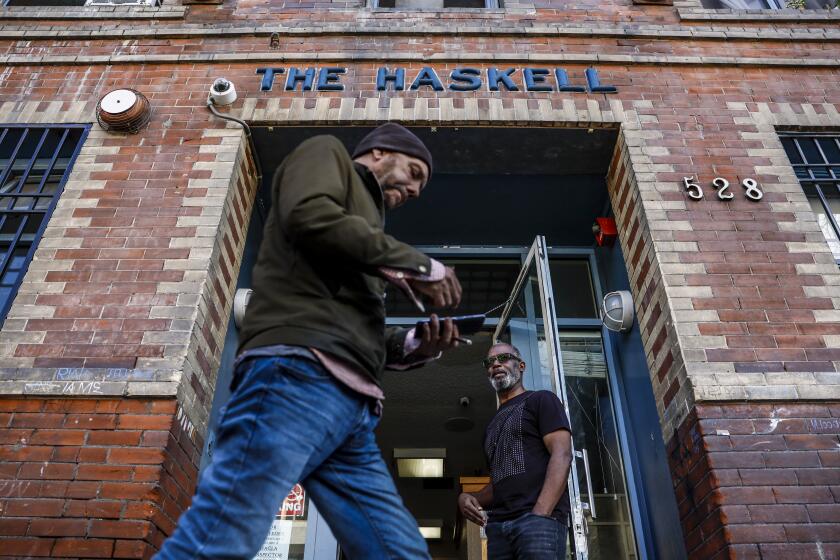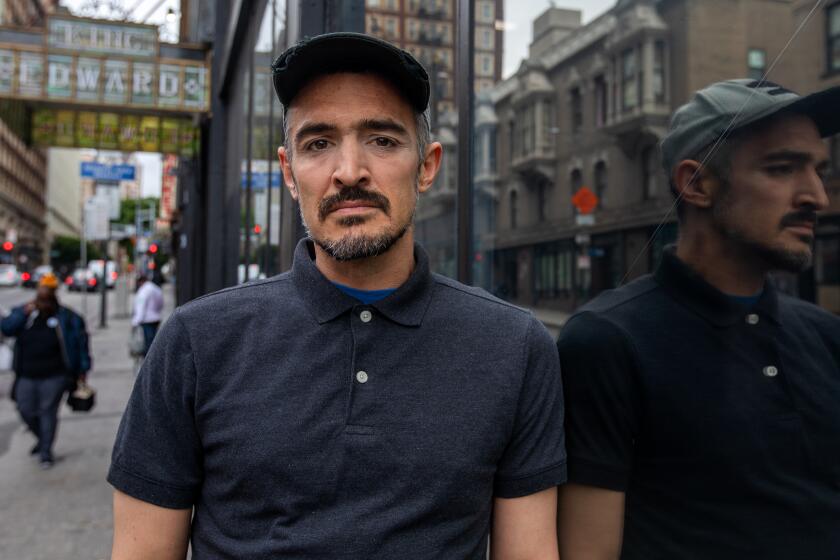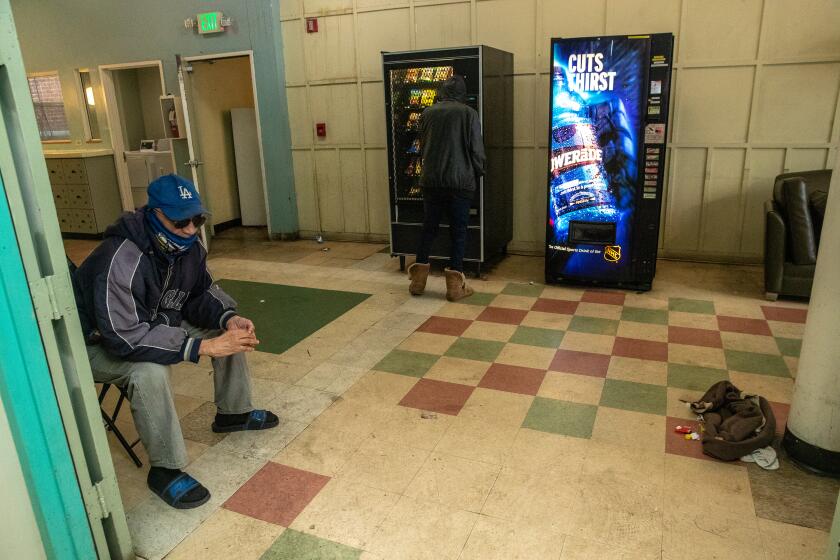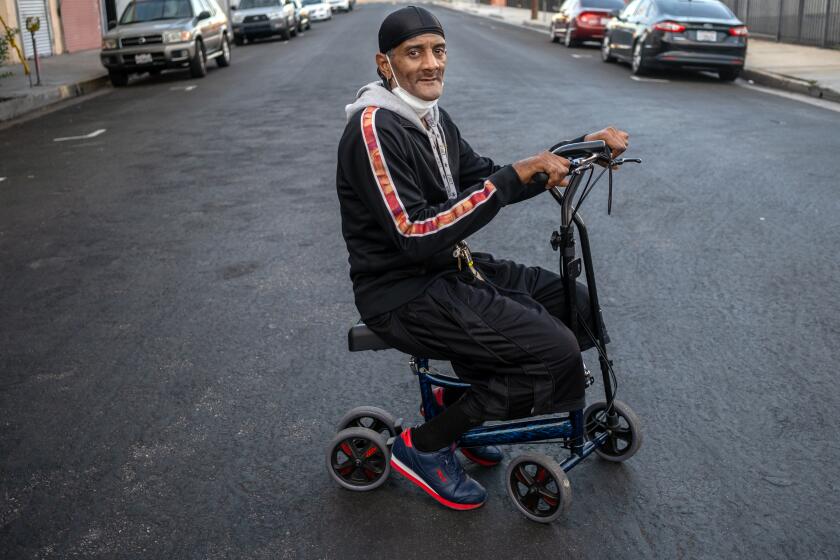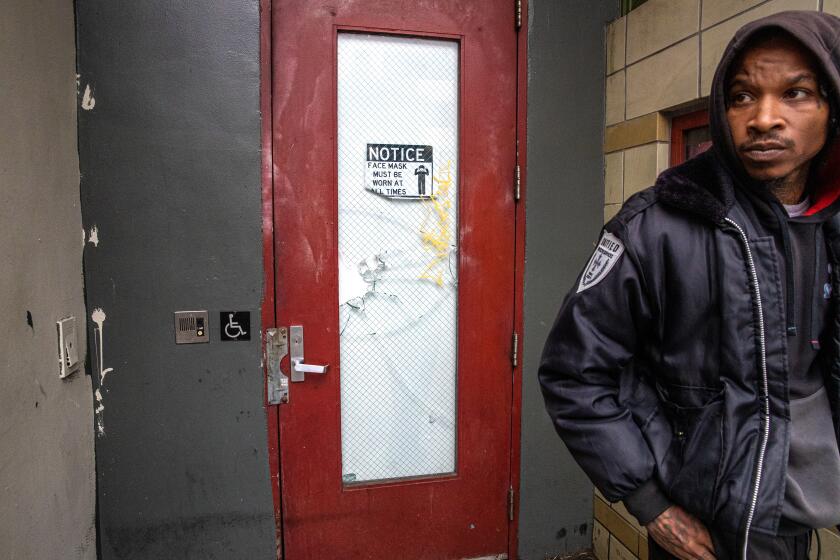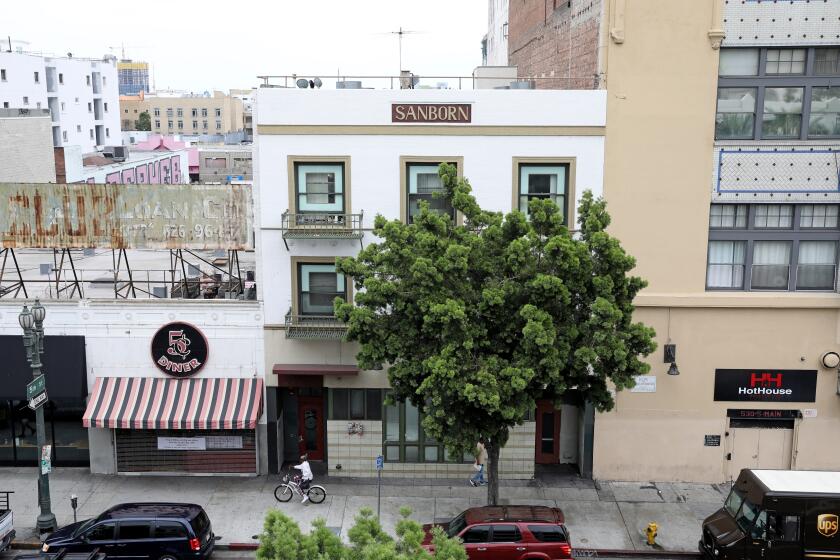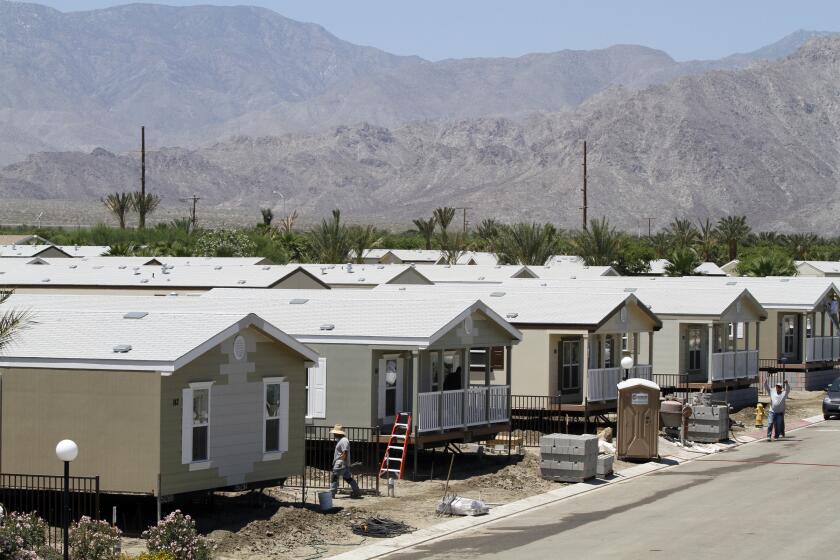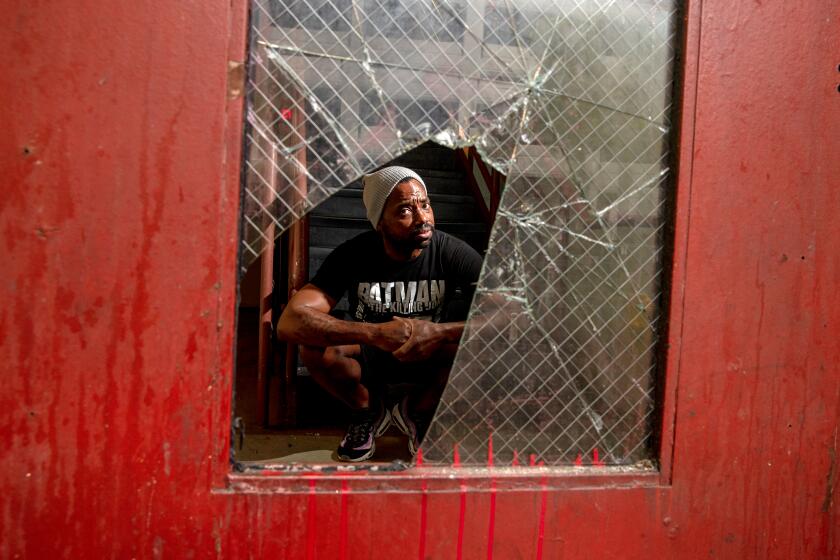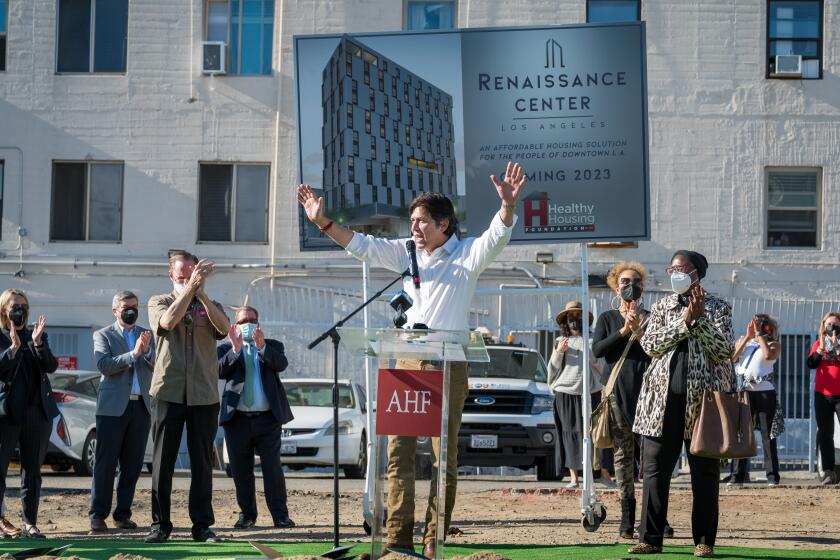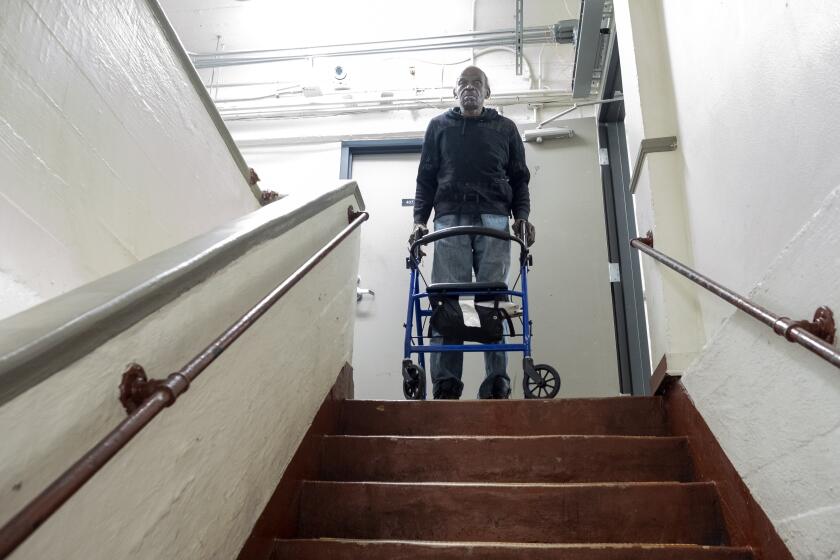The Times’ investigations into Skid Row’s troubled housing providers
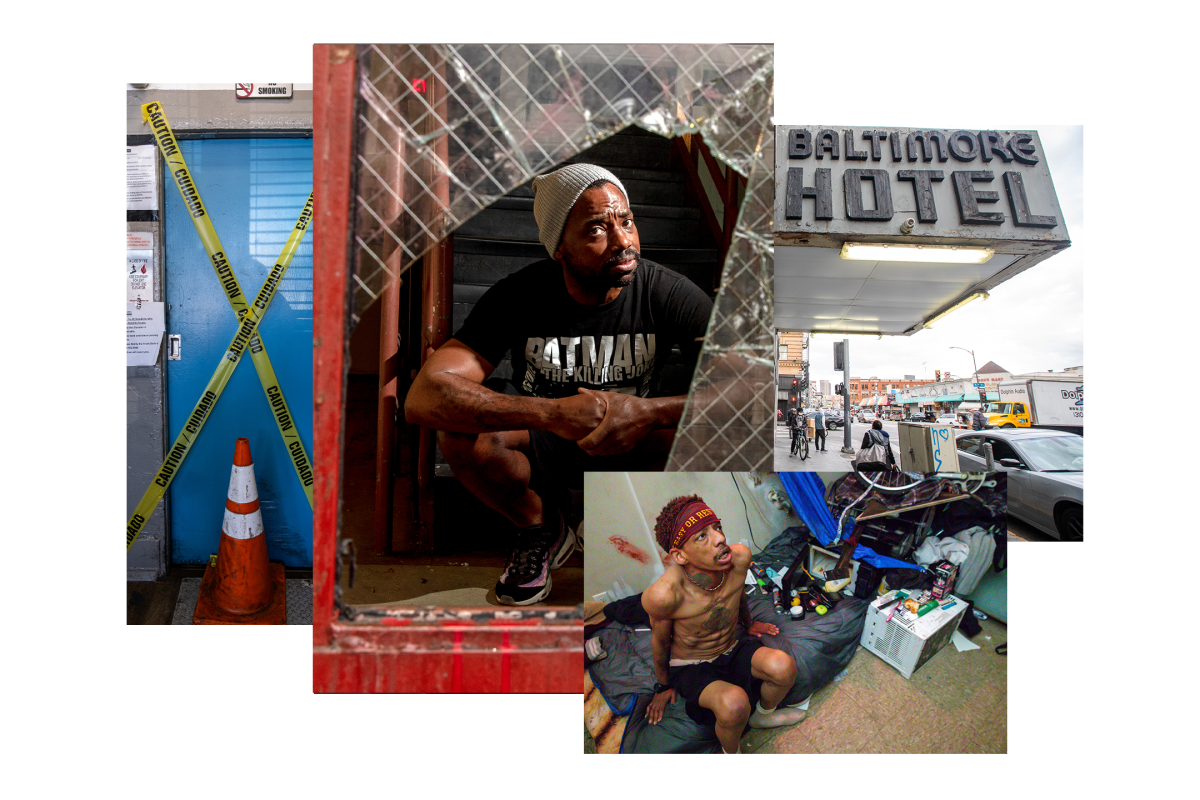
Skid Row Housing Trust and the AIDS Healthcare Foundation have been two of the largest landlords in Skid Row, operating more than 3,000 apartments combined for formerly homeless residents.
But in recent years, these two prominent nonprofits have experienced profound problems in their operations and with their tenants’ safety and living conditions. For Skid Row Housing Trust, which had widely been lauded for decades as the model supportive housing operator, its financial collapse was the result of years of mismanagement that led to increasingly poor maintenance of its properties.
The subsequent efforts by the city of Los Angeles to save the buildings and help the tenants inside them have been costly and marred by missteps.
Residents in AIDS Healthcare Foundation buildings also face severe habitability issues. The powerful charity promised to open and operate homeless housing faster and cheaper than government agencies and other nonprofits when it expanded its mission from healthcare to housing six years ago. But its tenants’ rights rhetoric has conflicted with the realities in its buildings and its pattern of evictions.
With so much attention being paid to the city’s unsheltered homeless population, the troubles of both nonprofits show the perils of operating aging buildings for formerly homeless people who may experience long-term mental and physical health crises.
